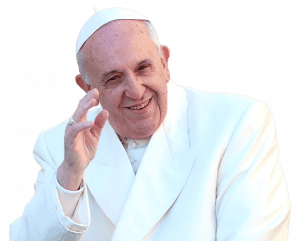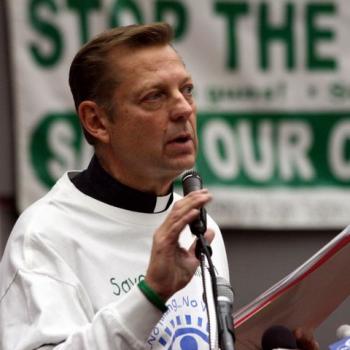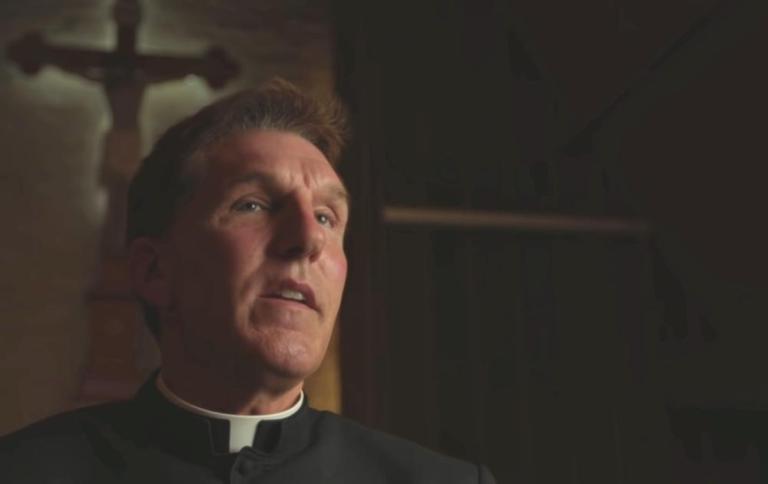
It was one of those ridiculous fake scandals you knew was going to be jumped on by the usual critics on Twitter.
When Pope Francis, while walking in St. Peter’s Square on New Year’s Eve, reacted in anger to a pilgrim who grabbed and yanked his arm from behind, the world saw the Vicar of Christ in an unflattering light. He scolded the woman and smacked her hand when she wouldn’t let go.
The Francis haters howled.
“The mask is off!”
“See! He’s a phony!”
“So much for mercy, huh?”
EWTN anchor, Fox News contributor and frequent Francis critic Raymond Arroyo got into the mix, tweeting an out-of-context quote from the pope’s New Year’s Day homily that was obviously meant to goad his followers into piling on the Holy Father. I called out Mr. Arroyo, who didn’t take too kindly to my challenging him.
Anyway, the papal hand slap seen ’round the world wasn’t the Holy Father’s finest hour. I think even the most ardent Francis supporters – many of whom defended the pontiff for reacting how most elderly people with sciatica would in that situation – admit the pope wasn’t in peak form that night.
But the next day, I would argue that the Holy Father was at his very best when he apologized for losing his patience.
“Love makes us patient. At times we lose our patience – me too. And I am sorry for the bad example I gave yesterday,” the pontiff said.
To admit you were wrong and to tell someone that requires contrition, but also a level of humility, self-knowledge and vulnerability that doesn’t come easy to everybody. To say, “I’m sorry” acknowledges you made a mistake. You admit that you were wrong in doing or saying something. You confess perhaps to a moment of moral weakness, poor judgement or a character failure in a given situation.
If I never swallowed my pride and said, “I’m sorry” to my wife, my marriage wouldn’t have lasted a year. I’ve had to apologize to friends, relatives, acquaintances and colleagues who I angered or offended. Upon reflecting on my recent social media activity, I apologized on Twitter for unfair criticisms I made regarding newspaper editors in my area.
That Pope Francis had to apologize for something should not scandalize us. If anything, if he had pretended that nothing had happened in St. Peter’s Square, that would have been a real cause for concern.
“Bear with one another; forgive whatever grievances you have against one another. Forgive as the Lord has forgiven you,” St. Paul wrote to the Colossians nearly 2,000 years ago.
From the Church’s first days, Christians have had to confess their sins, apologize to one another and forgive each other’s trespasses. Why? Because we’re still human beings. Even as we try to cooperate with God’s grace and grow in holiness, we still fail at times to live out the theological and cardinal virtues.
We can still be too quick to anger. We behave selfishly when our spouse needs us to be self-sacrificial. We get stubborn and ignore advice from a trusted confidante. We lash out at others for perceived slights. Instead of standing up against injustice, we choose silence and the path of least resistance. We give in to temptation and indulge in things we shouldn’t.
All that applies to the saints as well. If you think a canonized saint was raised to the altars because they never needed to apologize for something, you’re badly mistaken. They were flesh-and-blood people like us, subject to the same effects of original sin. Yes, they possessed heroic virtue, but they also had the humility to recognize their faults and apologize for mistakes.
This reflection on apologies was motivated by Pope Francis’ example, but also by a current in our coarsening national culture that seems to denigrate the idea of asking someone for forgiveness. In a culture war environment, exacerbated by social media, apologizing is seen as surrendering to the enemy. To say, “I’m sorry” is to be dismissed by some as weak or faint of heart.
I hate in this blog to invoke the example of President Donald Trump, but I will mention him here because he is on record as taking pride in never apologizing. That “never say you’re sorry” philosophy was perhaps never more stark than when the president called one of his supporters last year after mocking the man’s weight, thinking he was a protester at one of his rallies. A White House official went so far as to make it a point to correct the record in telling reporters that the president did not call the man to apologize, but instead to thank him for being a supporter.
Whether we care to admit it or not, the President of the United States sets the tone for our country, and I argue that his take-no-prisoners-and-never-apologize approach is wreaking havoc on our national discourse. Instead of being a leaven where they are, politically-involved Catholics on both sides of the aisle are mimicking that same cruel and unforgiving brand of politics.
We’re better than that. We have to be.












